How to check your breasts
One of the most important things you can do for yourself and your loved ones during Breast Cancer Awareness Month is to be breast aware and learn how to be check your breasts. You should then check yourself regularly, ideally every month.
To help you do this, the Marie Keating Foundation has created a short video showing you a simple technique.
![]() Check Your Breasts Monthly
Check Your Breasts Monthly
One week after the end of your period is the best time. If you have reached the menopause, check on the same day every month.
 Look for Changes
Look for Changes
Stand in front of a mirror with your hands in the air. Look for changes in size or shape, puckering, dimpling or redness of the skin.
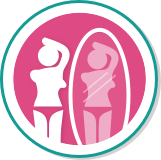 Feel for Changes
Feel for Changes
Using your fingers, check for any lumps, thickening or bumps.
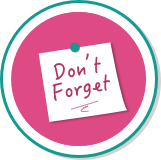 Areas Not to Forget
Areas Not to Forget
Gently squeeze the nipple to check for discharge. Check your armpit as breast tissue also extends here.
How to reduce your risk of breast cancer
For more information about how to reduce your risk of breast cancer, please click here.

Be a healthy weight
Being overweight or obese after menopause increases the risk of breast cancer. If you are overweight, try to reduce your intake of sugary and processed foods and eat more fruit and vegetables.
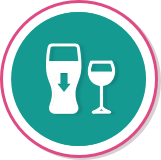
Limit alcohol
Research consistently shows that drinking alcohol increases your risk of breast cancer. The more alcohol you drink, the greater your risk. Women are recommended to have 11 units or less of alcohol a week, and no more than 2 units a day. Try to have days where you consume no alcohol at all. If you have been diagnosed with breast cancer you should consider giving up alcohol.

Get active
Most studies indicate that physically active women have a lower risk of developing breast cancer than inactive women. The more often and longer you exercise, the less your risk of developing breast cancer. Aim for 30 to 60 minutes per day of moderate- to high-intensity physical activity.

Breast feed
Breastfeeding lowers the risk of breast cancer, especially in premenopausal women. Mothers who breastfeed for a total of one year over the total of their lifetime are slightly less likely to get breast cancer than those who have never breastfed.
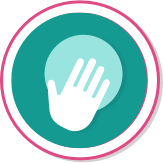
Check Your Breasts
Unfortunately there is little we can do about some risks associated with breast cancer apart from being aware of them. But you can be aware of breast changes to look out for. It is important to attend for breast screening tests with BreastCheck when you are invited. You should also check your breasts once a month, looking and feeling for any changes.

Don’t smoke
Smoking is linked to a higher risk of breast cancer in younger, pre-menopausal women. Research has also shown that there may be a link between very heavy second-hand smoke exposure and breast cancer risk in post-menopausal women.
Ways to get involved with the Marie Keating Foundation this October
- Stay tuned for 2023's BCAM events and activities
How your fundraising helps
When you hold a pink fundraiser for the Marie Keating Foundation during October, you are helping us to keep our cancer programmes and services going. Here are just some of the services that you are helping to support:
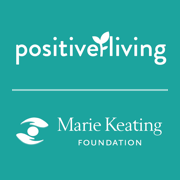
Positive Living
The Marie Keating Foundation’s new six week programme for people with metastatic cancer offers advice on how to manage physical symptoms of the disease, as well as how to cope with the significant emotional burden. The programme includes guidance on coping with uncertainty, feelings of guilt, anger and regret, coping with the side effects of treatment, using mindfulness and physical exercise to help deal with stress, and how to make legal and financial plans and find support for you and your family
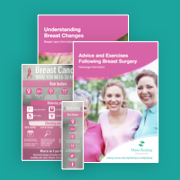
Breast Cancer Awareness packs
Each year, the Marie Keating Foundation distributes over 15,000 breast cancer awareness packs. Through our Mobile Outreach Programme, our nursing team has direct conversations with over 22,750 people about the signs and symptoms of cancer and how it can be prevented. See below if you would like more information on how to be breast aware
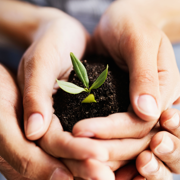
The Comfort Fund
The Marie Keating Foundation provides support to families that are financially affected as a result of cancer. In 2015, the Foundation gave over 345 Comfort Fund grants to families nationwide
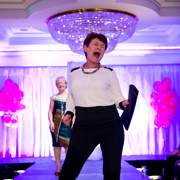
Survive & Thrive
There are over 28,000 breast cancer survivors in Ireland. In order to help cancer survivors transition to the ‘new normal’ the Marie Keating Foundation runs free Survive & Thrive courses nationwide. In 2015, over 450 people attended these courses.

